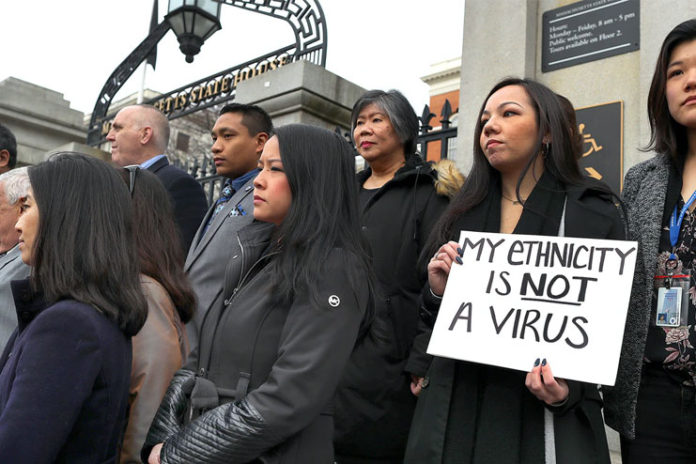As the US-China disputes over the Covid-19 pandemic escalate, the hate crimes against the Asian-American community have also gone out of spiral. The easing of the lockdowns is also witnessing several angry and disillusioned people out on the streets.
Amidst all of these, the one factor that is gaining momentum is the fact that the Asian-Americans make up for the fastest growing eligible voters out of all the other major racial and ethnic groups in the country.
According to a new report from Pew research, it clarified that over 11 million Asian-Americans are eligible to vote this year, which make up for 5% of the country’s total number of voters.
In between the years of 2000 to 2020, the number of Asian American voters have raised by 139%, followed by the Hispanic group by 121% and the black and white electorates by 33% and 7% only.
Just between 2000 and 2018, the number of eligible Asian immigrant voters jumped to 6.9 million from 3.3 million. Even though the projected number of Asian Americans eligible for voting was found to be 4.7% of the US eligible voters, it was still lower than the nation’s total population. The difference is because of the 4.5 million illegal adult immigrants who are not citizens and are thus not allowed to vote.
This specific group consists of the green card holders and the ones who are in the process of becoming one. It also includes the individuals on temporary US visas and the unauthorised immigrants. These groups counter for 24% of the Asian population in US.
Around 3.5 million of these Asian immigrants are under the age of 19, thus making them ineligible for voting. In total, 6 in 10 of the Asian Americans are eligible for voting.
US Asian eligible voters stand out in the crowd in multiple ways. Seven in ten in US have been reported to speak only English at home and that they speak quite fluently as well.
While the Asian American voters are spread across the country, majority of them live in three of the most popular US states including California, New York and Texas.
Amidst the eligible voters, the Asians in US have attained the highest levels of education in comparison to all the other racial and ethnic groups in the country. Why 65% of the Asians have a bachelor’s degree, only 19% of the Cambodian Americans have the same.
Majority of the Asian eligible voters also have a median income of around $105,000 which is the highest amidst all the other groups.
Recapture of the Green Card status
Citing the Covid-19 impacts, the US government has put in a lot of restrictions when it comes to the immigration, take the restrictions imposed on the H-1B visas as one of them. With such practices in place, the immigration advocates are constantly worried about the growth of the Asian-American community in India.
These immigrant regulations can further impact the Indian American green card holders and the future voters. There have been a bipartisan law that is being worked on to further let healthcare professionals to migrate from foreign countries to US.
The main objective behind the bill is to further recapture 25,000 immigrant visas for the nurses and 15,000 similar visas for the doctors. Reports have also reported that one sixth of the doctors in US are all foreign born.
Reports have suggested that the doctors have all been on temporary work visas in US and are currently in the backlog of the green card issuance, which is one of the main threats that these doctors have been facing consistently in their lives.
Heightened hate crimes
With the number of eligible voters increasing in US, the hate crimes against the Asian community has not come to a stop and is likely not going to happen anytime soon.
In a reported by Vice, it said that the hate propelled with President Trump’s speech against the novel coronavirus, being the “Chinese” virus, raising concerns and waves of racist remarks in the country.
Stigmatising the group directs hate and constant hate towards them, which is what happened. Not only that, such remarks comparing a virus to a ethnicity of people is dehumanising and at the same time, objectifies them as well.
Several helpline numbers have been made viable, taking in calls in case someone is faced with violent acts of racism of xenophobia. Since March 19, STOP AAPI HATE, a helpline that is meant for report such hate crimes against Asian Americans has received over 1700 racist and xenophobic attack cases.
The number doesn’t seem to subside even though the Asian American community makes up for one of the biggest vote bank of the country. Reports suggest that these persistent reports of such heinous acts are only going to increase as the time passes.














































